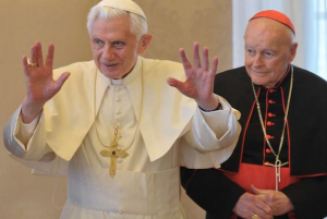 |
On the weekend of February 8, 2020, a storm ripped through Ireland. Storm Ciara was one of the worst of its kind for many years. Its winds, snows, and driving rains caused havoc with landslides and flooding.
At the same time, a political storm ripped through the Irish political landscape. Sinn Féin up-ended the political consensus and sent shock waves through the political establishment by winning the most first-preference votes in the 2020 general election. The party almost won the most seats, too, and would have done so if it had put up more candidates, as even Sinn Féin was not able to forecast correctly last weekend’s political tempest.
In the end, Sinn Féin won 37 seats; before the election it had 22. By all accounts, given the votes the party was piling up in constituency after constituency, it could have added another ten or so seats to that tally. Fianna Fáil managed to win one more seat than Sinn Féin, but given that this was seven fewer seats than it won in the 2016 general election, this could hardly be trumpeted as a victory. The former governing party, Fine Gael, could only manage 35 seats, which was down 12. There was only one victor last weekend, and that was Sinn Féin.
The headlines that ensued spoke of political surges and upheavals and, for once, they were apt. In the next days, weeks, and possibly even months, the attempt to form a government will not make as many headlines, but they will cause many headaches for all involved.
The simple fact is: there may be a clear winner in the election, but there now appears to be no clear path to forming a government. The two centrist parties, Fine Gael and Fianna Fáil, have both said they will not go into a coalition government with the left-wing and nationalist Sinn Féin.
In any event, following its electoral success, Sinn Féin has said that a border poll—an all-Ireland vote on the reunification of Ireland—would be the price of the party’s entry into a governing coalition. Irish unity is the raison d’être of Irish republicanism. The political reality of holding such a poll is that it would need to be agreed upon by the government of the United Kingdom. Since Sinn Féin refuses to recognize British rule in Ireland’s northern six counties, it does not acknowledge how impotent any Irish government would be in calling for a poll without the support of the government in London to enact that poll’s result were it to prove in favor of re-unification. It is unlikely that the Conservative and Unionist Party government led by Boris Johnson would accede to any request for such a poll.
❧
Sinn Féin’s huge vote was a result of good campaigning, a popular new leader in Mary Lou MacDonald, and it being the recipient of a protest vote from an Irish electorate exasperated by the longstanding failures of the two main parties, Fine Gael and Fianna Fáil. What drove Irish voters to Sinn Féin was not so much Irish unity as more mundane matters such as lack of public housing provision and poor-quality health services.
While abortion is a political issue in the forthcoming United States presidential election, the recent Irish general election shows that subject is no longer one for Irish voters.
In 2018, the Irish Republic held a referendum on whether to repeal the Irish Constitution’s protection for the unborn. The ensuing debate around this proposed change was heated. In the end, however, the repeal was carried overwhelmingly.
Although Ireland’s political establishment and media were in favor of the repeal of the constitutional safeguards, there were over a third of voters who were unhappy with the proposed change and voted against it. There were some who thought that with such a proportion of the electorate opposed to the course set by the country’s liberal establishment some realignment of Irish politics would be possible. Judging from the results of this election, however, that possibility has melted as quickly as the snows of Storm Ciara.
Politicians and political commentators were in agreement that abortion was no longer an issue with the Irish public judging from reactions on the doorstep and elsewhere, at least during this campaign. Less than two years after the referendum, the unborn are as forgotten when it comes to Irish elections as is the case in elections held in the neighboring United Kingdom.
Where the country goes next is anyone’s guess. The socialist agenda of Sinn Féin does not fit with the political priorities of either Fianna Fáil or Fine Gael. Regardless, the problem for any political party in trying to form a government after this election is that many political parties are now represented in the Irish parliament (Dáil Éireann).
Today, there are eight parties who hold seats, plus 19 independents. With the exception of the two larger establishment parties, all the parties represented in the Dáil are left-wing. Sinn Féin has suggested that it might try to form a left-wing coalition government made up of these diverse groups; the numbers for this, however, just don’t stack up. Then again, even if the two centrist parties were to bury their age-old differences and go into government together, they would still only have 73 seats—that is, seven short of the 80-plus majority needed to govern.
Various other permutations have been discussed, but the only certainty is that the next days will see much talking about possible governments of various hues while the country exists without one.
Whatever happens, Sinn Féin will be careful about its next move. The attraction of being in a coalition government has to be set alongside Sinn Féin’s need to remain positioned as the anti-establishment party in the public’s mind. Once Sinn Féin enters into government, it will become clear to all concerned—both party and public—that it is much easier to be popular in opposition than when making hard decisions in government.
Storm Ciara raged and flooded many parts of Ireland. At the same time, Sinn Féin stormed the Irish political establishment and upset its political landscape resulting in a Dáil Éireann awash with a plethora of political parties, each with competing demands in return for joining a possible coalition. And, all the while, there is no government anywhere in sight—especially so for Ireland’s unborn.
Photo credit: Shutterstock.com/Derick Hudson









